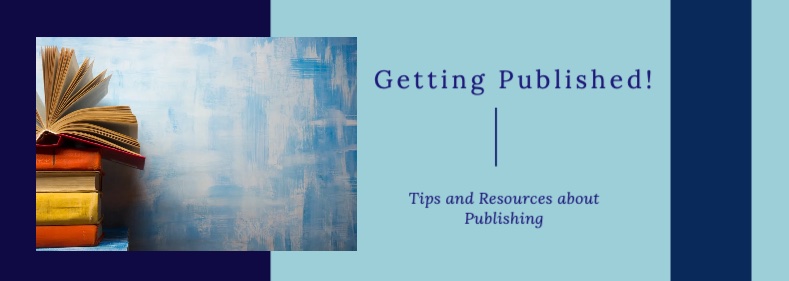By Lilian H. Hill
Writing titles, abstracts, and keywords for academic writing serve as the first point of contact between your work and potential readers. Suppose you neglect or rush the craft of these important tools. In that case, your manuscripts may not raise the interest of journal editors who decide which manuscripts to publish or, once published, be seen by members of your intended audience. It should be obvious that grammatical and typographical errors in the title, abstract, and keywords can detract from their quality and may be perceived as carelessness or a lack of professionalism. Therefore, it is essential to avoid such errors (Tullu, 2019).
Authors may focus on writing the body of the manuscript and treat the title, abstract, and keywords as afterthoughts or nonessential. They can be difficult to write but need your full attention because titles, abstracts, and keywords help to summarize content (Tullu, 2019). Journal editors will view these parts to decide if the manuscript fits the journal’s scope before they read the body of the manuscript. Titles, abstracts, and keywords also attract readers' attention and increase discoverability, meaning the degree to which sources can be located in databases, search engines, or other information systems. By carefully crafting these elements, you can effectively communicate the significance of your research and increase its influence within the scholarly community.
Titles
An effective title should succinctly convey your paper's main idea or focus. It should give potential readers a sense of what to expect and why they should be interested in reading further. Incorporating relevant keywords into your title can help improve your publication’s visibility in databases and search engines. Consider including terms potential readers might use when searching for literature on your topic.
The editors of Nature Human Behavior counsel that titles should not overstate the significance of research findings and should specify the human sub-population studied so that readers will not erroneously conclude that the results are generalizable to all populations (Writing More Informative, 2023). They state, “In choosing which details to include and which to omit from the title and abstract, it is important not to create a misleading impression about the generalizability or strength of evidence of a study” (para. 1).
Many authors include subtitles in their titles. The main part of the title establishes the general area of the work, while a subtitle can provide additional context or clarification to the main title, especially if the main title is broad. Subtitles help readers understand the specific focus or angle of the research. Subtitles serve as valuable tools for authors to optimize the effectiveness of their titles, making them more informative, engaging, and accessible to readers.
Titles that are broad or vague may fail to capture readers' attention. Aim for specificity by focusing on a particular aspect or specific angle of your research that makes it unique or noteworthy. Misleading or sensationalistic titles can erode trust and credibility. Likewise, avoid overly long or convoluted titles. Resist the temptation to be cute or funny. Avoid using the words “new,” “innovative,” or “modern” in your title because these terms do not wear well over time. For example, it can be humorous to find a book published in 1968 describing itself as “new” or “modern.”
Abstracts
Abstracts summarize your paper,
including its purpose, methodology, results, and conclusions. They should
condense the key points of your paper into a concise and coherent paragraph. The aim is to ensure that each word is
meaningful and contributes to the overall succinctness and clarity of the
abstract. Academic journals will specify the length of abstracts and the
format they expect.
Abstracts include separate sentences or phrases devoted to each aspect of the paper (e.g., background, methods, results, and conclusions). This helps readers quickly locate information. Including details about the research population, sample size, and data analysis methods used is essential (Writing More Informative, 2023).
Abstracts should use clear and accessible language and avoid jargon or technical terms unfamiliar to non-specialist readers. Like titles, abstracts should accurately represent the content of your paper. Avoid exaggerating or overselling your findings and be honest about any limitations. Abstracts should be factual and engaging enough to interest readers and encourage them to read the full paper. Abstracts can highlight the significance of research findings but should avoid unsubstantiated claims about the implications of the work (Writing More Informative, 2023).
Keywords
When you submit an article for publication, you will provide keywords, typically between three and five. Keywords help indexers and search engines categorize and locate your article. Keywords also help target your intended audience by identifying the main topics or themes. Including relevant keywords ensures that your article is easily discoverable by researchers interested in your topic. Databases and search engines use keywords to index articles, allowing users to search for specific topics or themes. By choosing appropriate keywords, you increase the chances of your article showing up in relevant search results. This ensures that readers interested in your research area are more likely to find and engage with your work.
Putting it Together
Titles, abstracts, and keywords need to be consistent. Using the same keywords in the title and abstract is one way to accomplish this. Once your article is published, this will be important so that people searching for information will not only find your article but also that its content will match their search terms.
In summary, keywords, abstracts, and titles play important roles in published articles, helping increase discoverability, summarize content, and attract readers' attention. By carefully selecting and crafting these elements, authors can effectively communicate the significance of their research and increase its impact within the scholarly community.
References
Tullu, M. S. (2019). Writing the title and abstract for a research paper: Being concise, precise, and meticulous is the key. Saudi Journal of Anaesthesia, 13(Suppl 1):p S12-S17. https://doi.org/10.4103/sja.SJA_685_18
Writing more informative titles and abstracts. Nature Human Behavior, 7, 465 (2023). https://doi.org/10.1038/s41562-023-01596-8





No comments:
Post a Comment
Thanks for your comment! It will appear once approved.